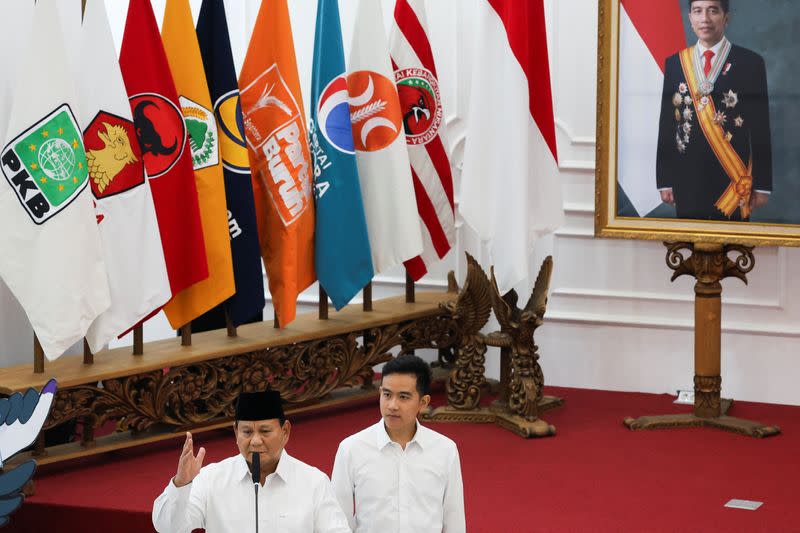Indonesia's Prabowo closes in on parliamentary majority after rival party pledges support

JAKARTA (Reuters) - Indonesian president elect Prabowo Subianto received a boost on Thursday after a prominent political party that backed another candidate pledged its support for his administration, moving him a step closer to securing a majority in the new parliament.
NasDem, which won 10% of the vote in February's legislative election, was ready to pledge its "full support" for the next administration, its chief Surya Paloh told reporters after a meeting with Prabowo.
He did not explicitly say, however, if NasDem would join the coalition. The party had backed Prabowo's rival, second-placed Anies Baswedan, a former Jakarta governor.
Political veteran Prabowo, running on a ticket with the son of popular president Joko Widodo, won the election by a huge margin at his third attempt and will take office in October.
He has been involved in a flurry of talks to build a parliamentary coalition, which could enable smoother passage of his programmes for Southeast Asia's biggest economy.
Defence Minister Prabowo had on Wednesday called for unity among political elites to take the country forward.
Speaking alongside Surya on Thursday, Prabowo said: "We agreed to work together for the interests of Indonesians as much as possible."
Prabowo's current alliance would comprise 48% of seats in the new parliament and NasDem's support could turn that into a majority.
The incoming president on Wednesday met the chief of another party that had backed Anies, which also pledged to work with the new government, though stopped short of saying it would join the alliance.
Prabowo's Gerinda party has said it plans to hold talks with political heavyweight Megawati Sukarnoputri, head of the biggest party in the new parliament, the Indonesian Democratic Party of Struggle (PDIP), which backed another presidential candidate.
(Reporting by Stanley Widianto; Editing by Martin Petty)

